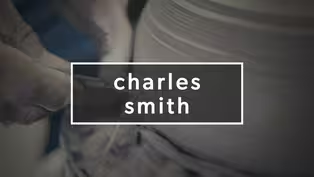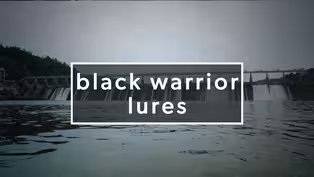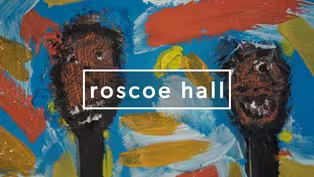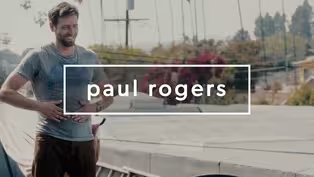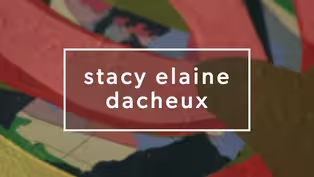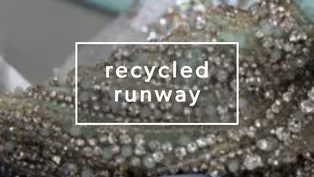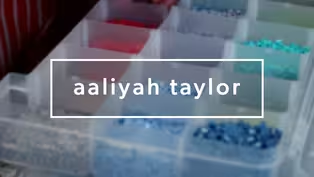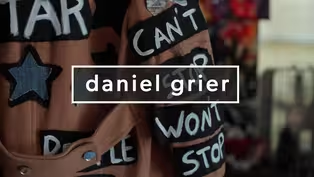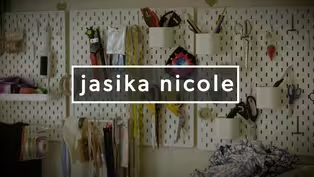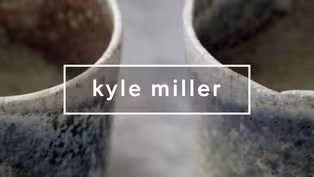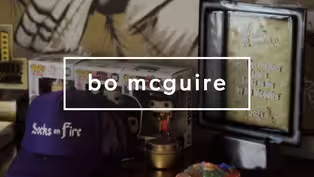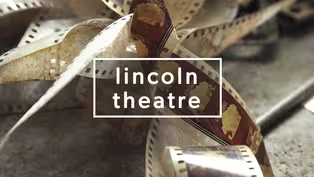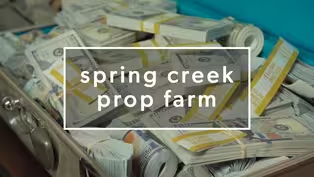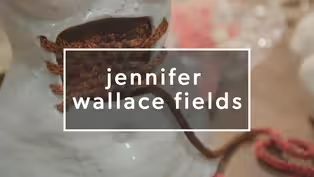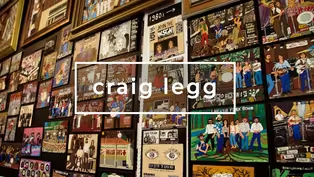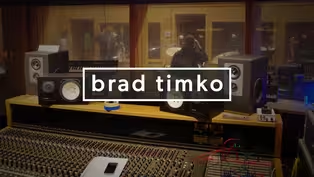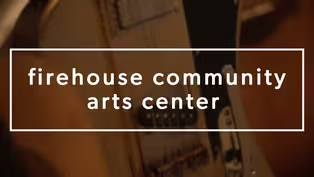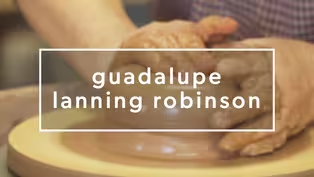Monograph
Bo McGuire
Clip: Season 5 | 5mVideo has Closed Captions
Poet and Filmmaker Bo McGuire from Gadsden, AL
We sit down with renowned filmmaker, storyteller, and icon Bo McGuire. We will explore various topics such as art, storytelling, and the moments in between that make life more fascinating.
Problems playing video? | Closed Captioning Feedback
Problems playing video? | Closed Captioning Feedback
Monograph is a local public television program presented by APT
Monograph
Bo McGuire
Clip: Season 5 | 5mVideo has Closed Captions
We sit down with renowned filmmaker, storyteller, and icon Bo McGuire. We will explore various topics such as art, storytelling, and the moments in between that make life more fascinating.
Problems playing video? | Closed Captioning Feedback
How to Watch Monograph
Monograph is available to stream on pbs.org and the free PBS App, available on iPhone, Apple TV, Android TV, Android smartphones, Amazon Fire TV, Amazon Fire Tablet, Roku, Samsung Smart TV, and Vizio.
Providing Support for PBS.org
Learn Moreabout PBS online sponsorship(light ambient music) - We are in Alabama, near the Coosa River and near some foothills.
And I think that that landscape is important to my work.
You can find secret holes and haulers here.
There's so many haulers to go into.
There's hills to climb.
There's also the water to carry stuff away.
My name is Beau McGuire and I'm a poet and filmmaker from Gadsden, Alabama.
So right now we're in the slack shack on the corner of Slack and Newton, which is my grandmother's home my father's mother's home who was a librarian a children's librarian here in Gadsden.
That sort of ear about being a poet and being a storyteller really begins like laying on the floor, listening to my mother on the phone, talk to her mother and her sister.
That's the sort of like sense of language and the particular ways in which southern women voice things probably is the base of my artistic practice.
And I realized that I could write good poems or that I had an ear that I probably had inherited from the women of my family.
And I realized I didn't wanna do anything else really except create, I was an artist fortunately and unfortunately Dolly Parton is a big influence on me because when I realized that she was a poet and like sort of her history about, of cultivating her imaginative sense and her creative sense out of the world she grew up in and the people she was surrounded by and putting that to lyrics, I realized that I could be a poet.
That it wasn't this sort of like thing to be wrapped up in a book you know, necessarily that like poetry was living When I finished school in New York for filmmaking I didn't really wanna live in New York.
The three things that are really conducive to being a productive, creative person which is time, space, and quiet are three things you spend most of your life fighting for in a place like New York.
I could see myself like getting a job as an assistant editor or like production design but I knew all that stuff would take me away from my stories and from the people and the places that influenced my stories, which is here.
So I moved home.
Moving back here was the only thing that made sense to me 'cause it connected me with the land and connected me with the people.
And I think, you know, I am really about trying to make films that have the people in them that they are for.
And I feel like, you know, a large part of the United States gets ignored by the media makers Southern tellers, southern makers do it better.
I think that they have a particular way of seeing this this world and this culture that we come from.
And the dominant story about creatives and successful people from the south a lot of the time and especially #*#*#*#*#* people from the south, is about getting out of this place.
So I think it's really important to tell the stories about people returning here and about people staying here.
I think that's where their wisdom is.
Even if you leave this place carrying a sense of the goodness that's here with you and not only seeing it as a place to flee from.
Socks on Fire is my first feature film.
It's what I call a transgenerational docudrama.
And by that I mean it does not operate under the normal rules of documentary filmmaking.
We use all the colors in the crayon box and make up a few of our own.
It's a love letter to southern femininity, which, you know I think saved myself in a lot of ways.
But that love letter is couched in the battle between my family members as they fight over my grandmother's estate when she died without a will.
My other grandmother who didn't live here in this house she lived in the house my uncle John lives in now.
We always said our goal was to have Sunday school teachers and drag queens in the same room.
That's the lesson of Dolly Parton, uniting people and and under the force of love.
It's been really wonderful.
It's been a particular joy to experience this film with #*#*#*#*#* southern audiences.
You know, I've heard, not as a point of bragging, but I've heard, you know a lot of people say, I had never seen myself in a film before and now I can see myself here.
So that means a lot.
'Cause that was the work we set out to do was to create something different.
To really show that the South is a place of queerness, #*#*#*#*#* individuals reclaiming southern landscapes and southern iconography for themselves.
And to say queerness has always existed here.
And isn't it a beautiful thing?
And doesn't it link up exactly with the wild and wonderful contradictory south.
(light ambient music continues)
Video has Closed Captions
Clip: S5 | 6m 47s | Charles Smith shows you where to find the story hidden in plain sight. (6m 47s)
Video has Closed Captions
Clip: S5 | 6m 59s | A fisherman outside of Tuscaloosa is always finding new ways of doing things. (6m 59s)
Video has Closed Captions
Clip: S5 | 8m 19s | Chef and painter Roscoe Hall brings his life's experiences together to find his own voice. (8m 19s)
Video has Closed Captions
Clip: S5 | 6m 15s | Oscar-winner Paul Rogers on the value of collaboration and the core of outstanding work. (6m 15s)
Video has Closed Captions
Clip: S5 | 5m 9s | Painter and writer Stacy Elaine Dacheux (5m 9s)
Video has Closed Captions
Clip: S5 | 5m 45s | Birmingham youths transform old clothes into high fashion. (5m 45s)
Video has Closed Captions
Clip: S5 | 6m 54s | Birmingham, Alabama jewelry and clothing designer, Aaliyah Taylor (6m 54s)
Video has Closed Captions
Clip: S5 | 4m 34s | Highlighting the world of fashion in the Magic City with Daniel Grier (4m 34s)
Video has Closed Captions
Clip: S5 | 7m 45s | Actor and maker based in Los Angeles, Jasika Nicole (7m 45s)
Video has Closed Captions
Clip: S5 | 4m 43s | Fairhope, Alabama ceramics artist, Kyle Miller (4m 43s)
Video has Closed Captions
Clip: S5 | 5m | Poet and Filmmaker Bo McGuire from Gadsden, AL (5m)
Video has Closed Captions
Clip: S5 | 6m 14s | The story of Bessemer's historically Black theater and efforts to restore it. (6m 14s)
Video has Closed Captions
Clip: S5 | 5m 37s | tour spring creek film prop farm in montevallo alabama (5m 37s)
Video has Closed Captions
Clip: S5 | 7m | A studio visit with ceramic artist Jennifer Wallace Fields (7m)
Video has Closed Captions
Clip: S5 | 4m 50s | Craig Legg's Birmingham rock and roll retrospective. (4m 50s)
Video has Closed Captions
Clip: S5 | 4m 48s | Visit a historic recording studio near Muscle Shoals (4m 48s)
Firehouse Community Arts Center
Video has Closed Captions
Clip: S5 | 5m 54s | Firehouse Community Arts Center in Avondale, AL (5m 54s)
Video has Closed Captions
Clip: S5 | 4m 33s | Alabama based potter stays grounded to her Mexican roots through her craft (4m 33s)
Providing Support for PBS.org
Learn Moreabout PBS online sponsorshipSupport for PBS provided by:
Monograph is a local public television program presented by APT
